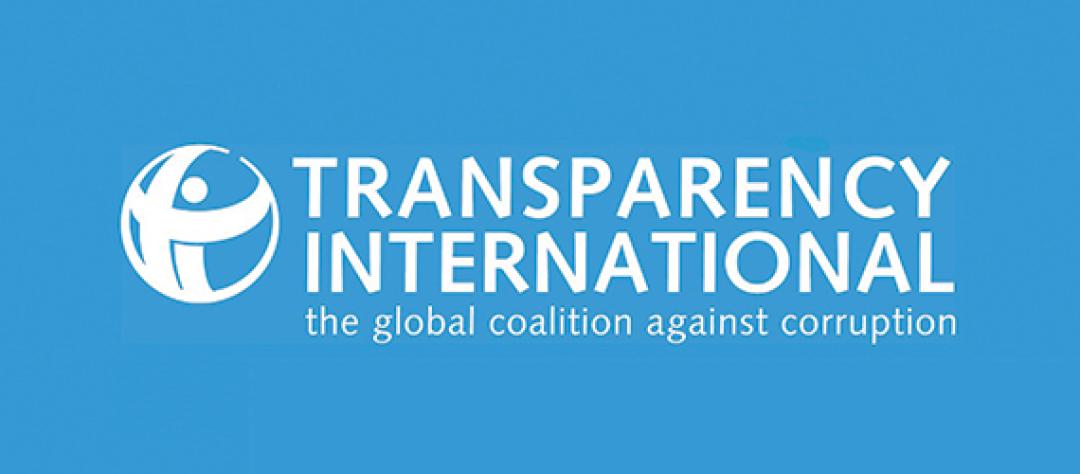
South Caucasus countries in Transparency International's corruption overview

On 7 April, the German-based international NGO “Transparency International” (TI) published their overview on corruption issues and anti-corruption institutions in the Eastern Partnership countries (EaP). The analysis read that while systemic corruption remains an issue in the region, there are encouraging signs that some of the countries that suffer from the most severe issues are taking steps to tackle corruption.
Armenia
The report stated that out of all EaP countries, Armenia appeared to be the one with the highest momentum in its anti-corruption fight. The term of Armenia’s current Prime Minister Nikol Pashinyan has been a time of significant reform attempts. Following the revolution, corruption investigations more than doubled and the government of Armenia introduced a new anti-corruption strategy with its 2019–2022 implementation action plan. Overall, the approach of the Armenian government has resulted in slow and gradual but steady improvements in Armenia’s governance indicators. Armenia has also seen a substantial improvement in electoral processes, some improvements in civil liberties and slowly expanding space for civil society. These positive developments have largely been identified as an outcome of the Velvet Revolution.
Armenia’s score on the corruption perceptions index improved by 7 points from 2018 to 2019. With its score of 42 out of 100, however, Armenia’s CPI score is still below the world’s average, and substantial challenges remain. Corrupt networks still hold some influence in institutions, such as law enforcement and judiciary, as well as some influence in the private sector. Introducing rule of law is possibly the chief challenge in a country where judicial institutions have never been fully independent, and where lawyers have had to live with political pressure.
Azerbaijan
According to the report, political power is concentrated in entrenched patronage networks that revolve around the ruling family. Azerbaijan’s state has come to embody a textbook case of a kleptocracy, a mode of governance designed to extract resources from society to enrich and reproduce elite power.
Azerbaijan is in many ways a rentier state and, with 90% of its exports and 45% of GDP coming from oil and gas, it is heavily reliant on revenue generated in the extractive industries. Even by rentier state standards, Azerbaijan suffers from high levels of corruption. As a result, Azerbaijan was excluded from the Extractive Industries Transparency Initiative in 2017.
Minor signs, however, are emerging showing that this decades-long stasis could slowly come to an end. Recent months have seen, on one hand, a rise in unrest and protest, while on the other, President Ilham Aliyev began a careful reshuffling of some key political posts in the country. These include Aliyev’s chief of staff Ramiz Mehdiyev, who is believed to have been the second most powerful man in Azerbaijan since the 1990s and one of the chief architects of the Azerbaijani state’s security apparatus. One hypothesis is that Azerbaijan is engaged in a form of “authoritarian modernisation”, a form of civil service reform that should improve state efficiency while maintaining the political status quo.
Azerbaijan’s institutional setup to counter and prevent corruption has mostly been effective in addressing petty corruption, leaving the patronage networks who engage in grand corruption intact. The report stated that a key impediment to the efficiency of anti-corruption institutions and policies has been the lack of political will.
Georgia
The report stated that while Georgia has often stood out as a positive example of how inclusive institutions could consolidate in former Soviet states. While protest movements show that the spirit of democracy is alive and well, the political crises of recent years also show that the country still has some way to go. Arguably, Georgia still embodies some characteristics of a hybrid regime and has some structural issues to overcome.
Individual and political freedoms, such as freedom of assembly and freedom of speech, are generally respected (Freedom House 2019d). However, individuals and civil society organizations have been subject to political pressure. Such pressure includes orchestrated disinformation campaigns against CSOs and the opposition. Also, the Georgian judiciary lacks independence and has been pressured to make decisions that favour ruling parties.
On most corruption indexes, Georgia performs relatively well by regional standards. On the 2016 Global Corruption Barometer, 7% of Georgians reported having paid a bribe in the last year, a number that is significantly lower than for any other EaP country. According to the latest Association Implementation Report, the EU Commission services, and the EEAS find that, even though there are a number of gaps to overcome, Georgia’s anti-corruption efforts are mostly in line with its commitments. However, while levels of petty corruption are not very high, there are still reasons to worry about grand corruption and corruption in the judiciary.
According to the latest TI corruption perception index, published in January 2020, Armenia was ranked 77th, Azerbaijan 126th and Georgia 44th worldwide by their perceived levels of public sector corruption (Caucasus Watch reported). Transparency International e.V. (TI) is an international non-governmental organization based in Berlin, Germany, and was founded in 1993. Its non-profit purpose is to take action to combat global corruption with civil societal anti-corruption measures and to prevent criminal activities arising from corruption.
See Also


Mirzoyan Meets US Deputy Assistant Secretary Joshua Huck

Azerbaijani President Holds Talks with UAE and German Business Delegations on Economic Cooperation

Grigoryan Confirms Armenia’s Readiness to Dissolve OSCE Minsk Group Upon Peace Treaty Signing

Azerbaijani Official Warns of Ecological Risks to Caspian Sea, Similar to Lake Urmia and Aral Sea

